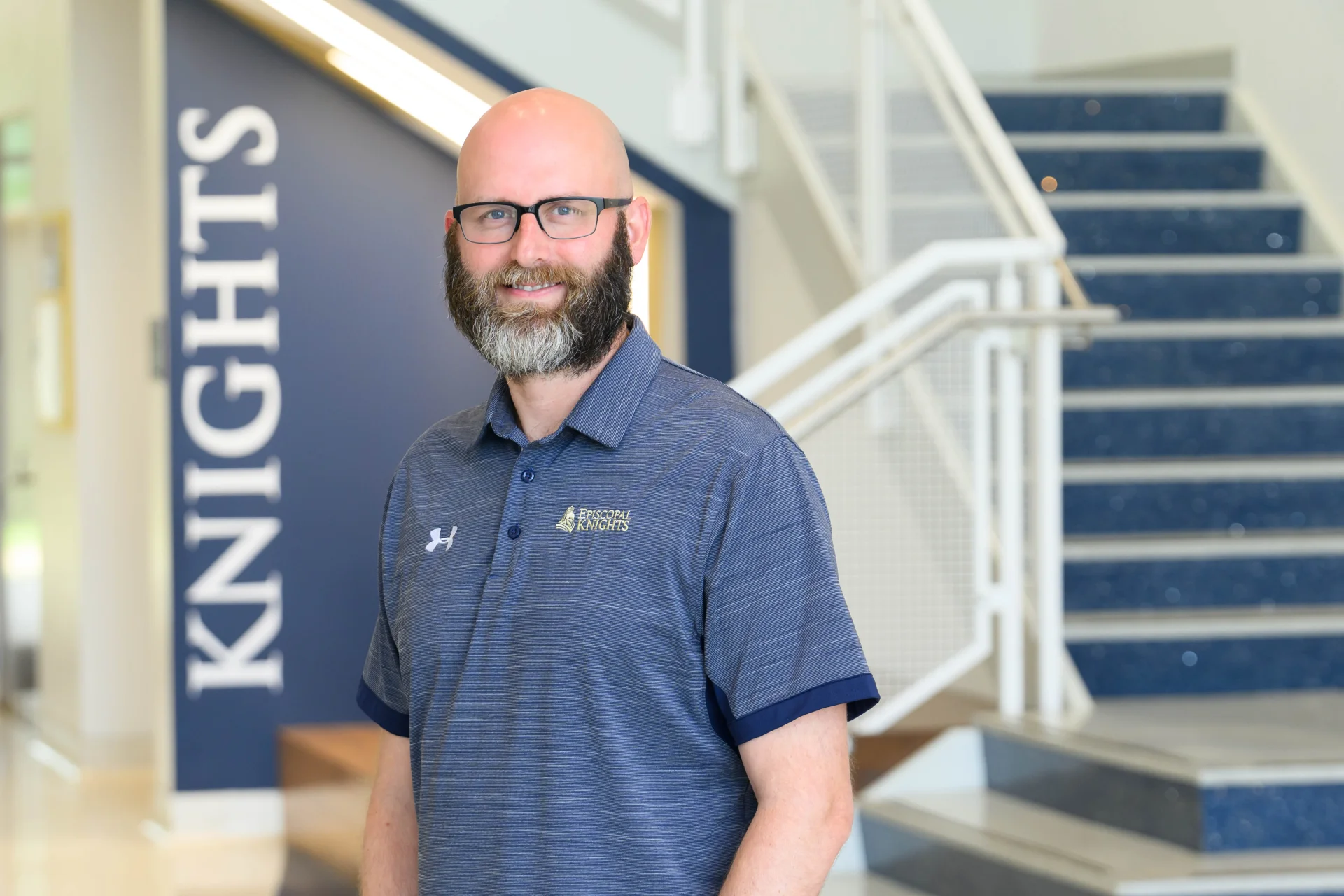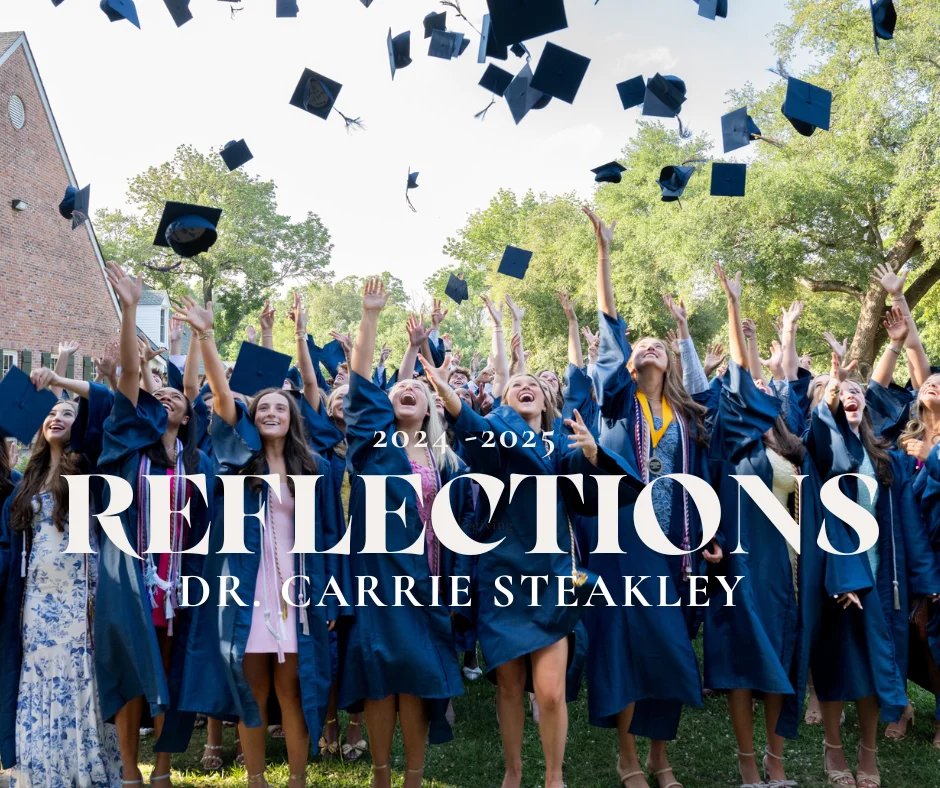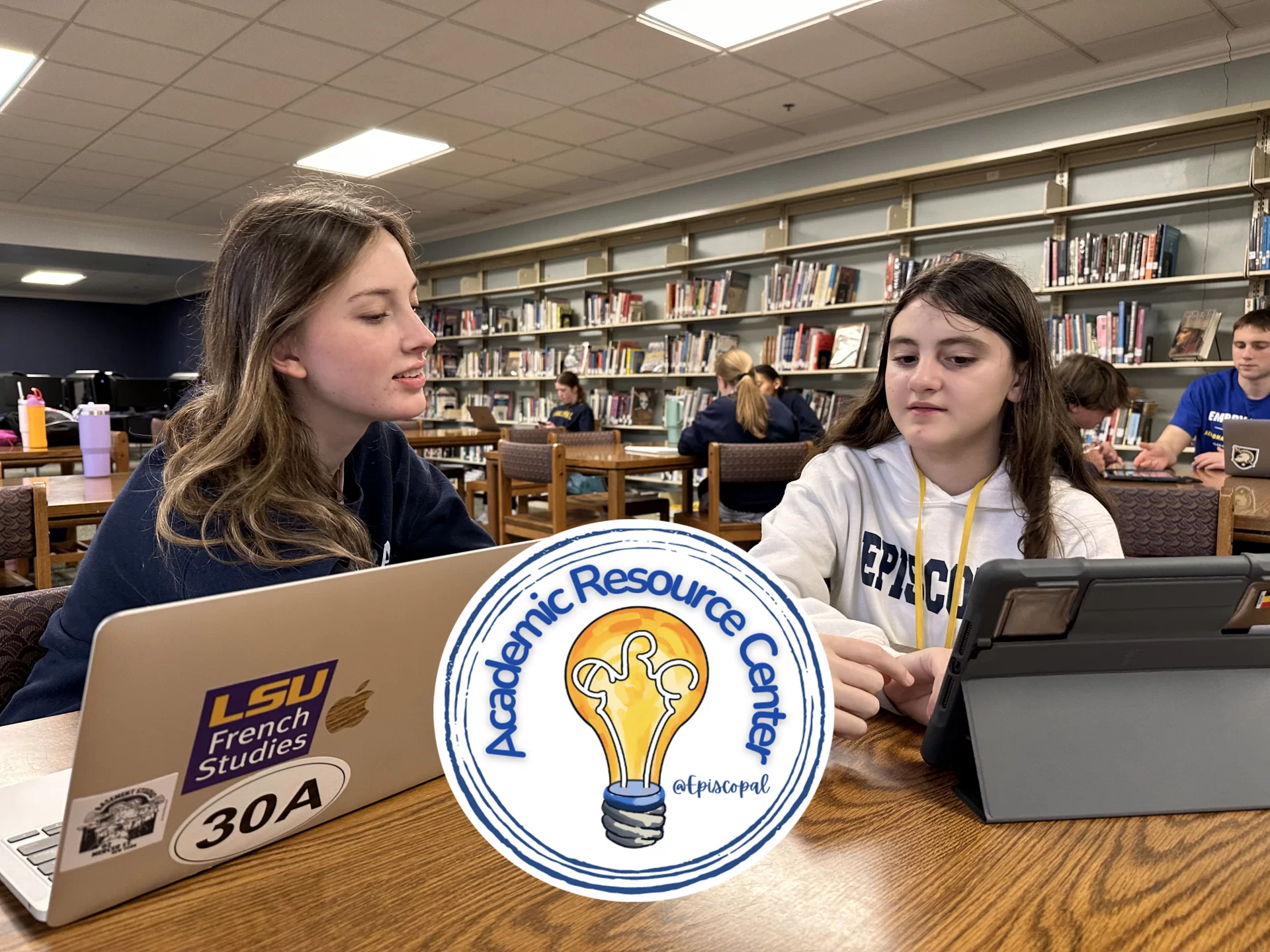- Admission
- Discover Episcopal
- Our Program
- Athletics
- Arts
- Spirituality
- Student Life
- Support Episcopal
- Alumni
- Parent Support
- Knightly News
- Contact Us
- Calendar
- School Store
- Lunch Menu
- Summer Camps
« Back
Middle School Science Lesson Sheds Light on Photosynthesis
January 11th, 2023

Seventh graders wrapped up a unit on plants with a classic experiment about the process of photosynthesis. “I learned even more about what really happens with photosynthesis,” says seventh grader Collin Ehrlich. “This has honestly been one of my favorite things we’ve done so far.” This is the first time science teacher Jessica O’Neal has tasked Middle School students with this experiment, which she previously taught to university students. The experiment is also traditionally part of AP Biology Lab. With a few adjustments, Episcopal seventh graders easily rose to the occasion.
Discovering the Key to Photosynthesis
Students conducted the experiment on the leaves of plants that had been in a dark cabinet for several hours. Without light, photosynthesis was not occurring, and O’Neal warned students that once the leaves were exposed to a light source, the process would quickly begin. “They’re going to come out ready to go,” she advised. Once the leaves were out of the cabinet, students efficiently clipped samples, placed them in a syringe and drew up two different solutions. The seventh graders manipulated the syringe to achieve a vacuum, and the leaf samples sunk to the bottom. Finally, the loaded syringe was placed under a lamp and observed every two minutes. As time passed, leaves started to rise, and students had data to record.
After 20 minutes of observation, students gathered as a group to review. O’Neal challenged them to think about why the leaves rose in some solutions but not others. The savvy young scientists determined that the key to the process was carbon. O’Neal revealed she added baking soda to one solution and not the other, allowing photosynthesis to occur.
Learning More about the World through Science
Whether students are working with university professors through the ESTAAR program, creating structures to withstand earthquakes or exploring the early childhood garden, opportunities for science learning at Episcopal abound. Episcopal faculty create meaningful opportunities for students to delve deeper, including the recent field trip to Costa Rica, an exploration of the LSU lakes and an on-campus litter awareness initiative. Experiences like growing food in the hydroponic greenhouse expose students to scientific concepts without them realizing it. Lessons are challenging, engaging and fun in all divisions. Science learning is a great example of how Episcopal prepares students to be future leaders.
The Episcopal School of Baton Rouge 2025-2026 application is now available! For more information on the application process, to schedule a tour, or learn more about the private school, contact us at [email protected] or 225-755-2685.
Posted in the categories All, Middle School.
Other articles to consider
 Jun5Episcopal Announces New Athletic Director
Jun5Episcopal Announces New Athletic DirectorPlease join us in welcoming Brent Broussard to the Episcopal community.
See Details Jun2Episcopal Welcomes Dan Binder as the Next Upper School Division Head
Jun2Episcopal Welcomes Dan Binder as the Next Upper School Division HeadPlease join us in welcoming Dan Binder to the Episcopal community.
See Details May22End of the Year Reflection from Dr. Steakley
May22End of the Year Reflection from Dr. SteakleyAn Episcopal education and the community that supports it are remarkable. Dr. Steakley looks back at the moments that made the 2024/2025 school year.
See Details May12Tutoring with a Purpose: Jackson Ezell Reflects on His Time in the Academic Resource Center
May12Tutoring with a Purpose: Jackson Ezell Reflects on His Time in the Academic Resource CenterTime as an ARC Fellow boosts student confidence, encourages friendships and fosters lifelong learning habits. Senior Jackson Ezell reflects on his transformation as a tutor and the transformation of the center from Writing Center to Academic Resource Center.
See Details
Categories
- All
- Admission
- Athletics
- College Bound 2019
- College Bound 2020
- College Bound 2021
- College Bound 2022
- College Bound 2023
- College Bound 2024
- College Bound 2025
- Counselors Corner
- Episcopal Alumni
- Giving
- Head Of School
- Lower School
- Middle School
- Spirituality And Service
- Student Work
- The Teachers' Lounge
- Upper School
- Visual And Performing Arts















